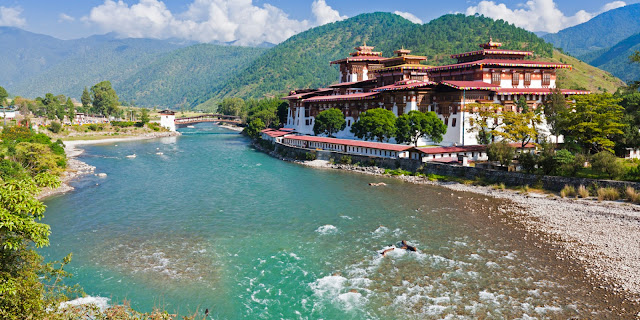Is GDP A Detrimental Way to Determine the Success of A Nation?
WHAT IS GDP?
GDP is a tool of measurement used by the International
Monetary Fund and the World Bank to measure the wellbeing of nations. GDP
compiles the value of all final goods and services produced or traded for money
within a given period of time. This includes money spent on oil drilling,
logging, and war. It includes money made from processes that release dangerous
toxins; it includes money spent on mass incarceration and
unhealthy food; it includes money spent to build oil pipelines and to drop bombs,
and it includes money made from industries that dump pollutants into our
rivers, streams, and oceans. A Boston University journal explains, “Economists
have warned since its introduction that GDP is a specialized tool, and treating it as an indicator of general
well-being is inaccurate & dangerous.”
WHY DO WE CONTINUE TO USE GDP TO MEASURE NATIONAL
WELLBEING?
We continue to measure national wellbeing with GDP because
there has not been a great enough demand for a new scale of measurement. To
create change, we have to be aware of the issue, we have to be aware of
potential alternatives, and we have to take action.
ARE THERE BETTER OPTIONS?
Efforts to create Green GDPs “factor estimates for
environmental degradation and depletion of natural resources”. The Genuine Savings, developed by the World
Bank, factors in global damages from carbon emissions and considers the capital
required for human society to thrive.
The Genuine Progress
Indicator (GPI) seeks to correct the weaknesses of GDP measurement by factoring
in the sustainability of income. A nation that has a high GDP from oil drilling
will have a low GPI because income from oil drilling harms our environment.
The Ecological
Footprint accounts for the flow of energy and matter in and out of the
human economy and the area of productive land and water required to support
this flow. Subjective Well-Being
seeks to measure people’s satisfaction in quality of life; it seeks to measure
the extent to which human needs are being met.
A Google search of “alternative GDP measurements” will
reveal several more schemes with goals of creating wellbeing measurements that
reward planet-healing activities.
The nation of Bhutan has rejected the use of GDP as a
measurement of national wellbeing since 1971. Instead, Bhutan measures Gross
National Happiness.
Bhutan has pledged carbon neutrality and
promises to leave 60% of its land under forest cover. The nation is founded on
equitable social development, cultural preservation, conservation of the
environment, and promotion of good governance. There is a national ban on
export logging and an enforced pedestrian-only day every month.
Thakur Singh Powdvel, Bhutan's minister of education, explains, "GNH is an aspiration, a set of guiding principles through which we are navigating our path towards a sustainable and equitable society. We believe the world needs to do the same before it is too late.”
Thakur Singh Powdvel, Bhutan's minister of education, explains, "GNH is an aspiration, a set of guiding principles through which we are navigating our path towards a sustainable and equitable society. We believe the world needs to do the same before it is too late.”
Bhutan’s belief that wellbeing should take
precedence over material growth has created important changes over the last
twenty years. Bhutan has doubled its life expectancy, enrolled almost 100% of
its kids in primary school, and completely overhauled its infrastructure.
Powdvel explains, “it’s easy to mine the land
and fish the seas and get rich. Yet we believe you cannot have a prosperous
nation in the long run that does not conserve its natural environment or take
care of the wellbeing of its people.”
When our measure of success rises in connection
to detrimental activities like water pollution, we encourage economic activity
even if it has dangerous consequences for our health. Isn’t it highly likely
that we would have a cleaner and healthier planet, and cleaner and healthier
water, if we adopted a new measure of national wellbeing that penalized harmful
activity?
Do you think the world should adopt a
measurement of national wellbeing like Bhutan’s measurement of Gross National
Happiness? Would a new measurement of national wellbeing result in cleaner
water? We’d love to hear your thoughts—please share them in the comments below!
Our project is working in harmony with water.org to provide access to safe water. We hope “to break the cycle of poverty”, “to protect and save lives”, and “to make a bright future possible for all”: Make A Difference Donation
Sources:



Comments
Post a Comment
Let your knowledge, ideas, and innovation be heard. Tell us what you think and know about this topic.